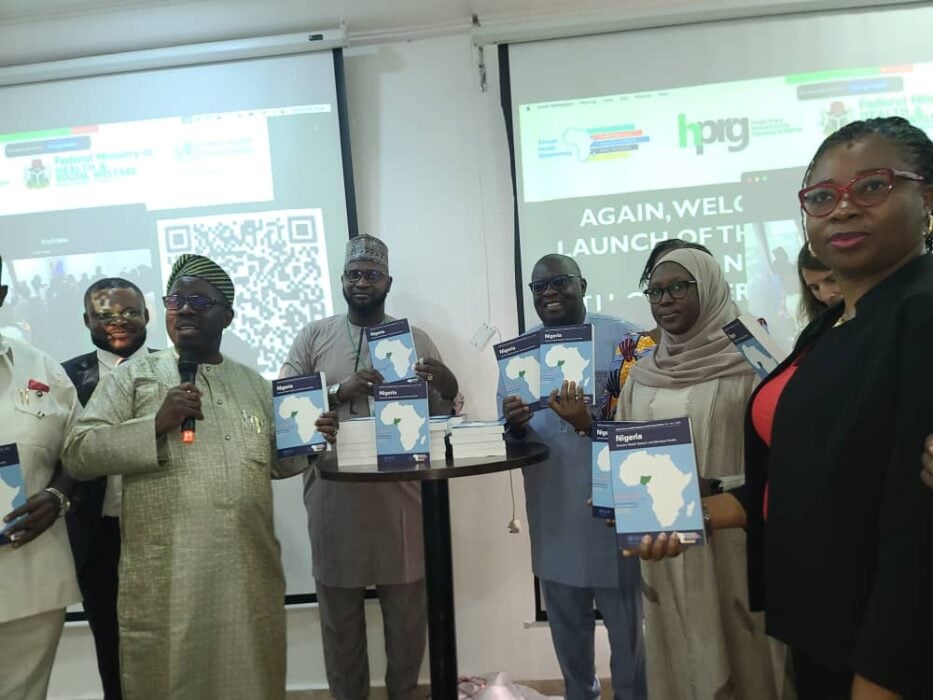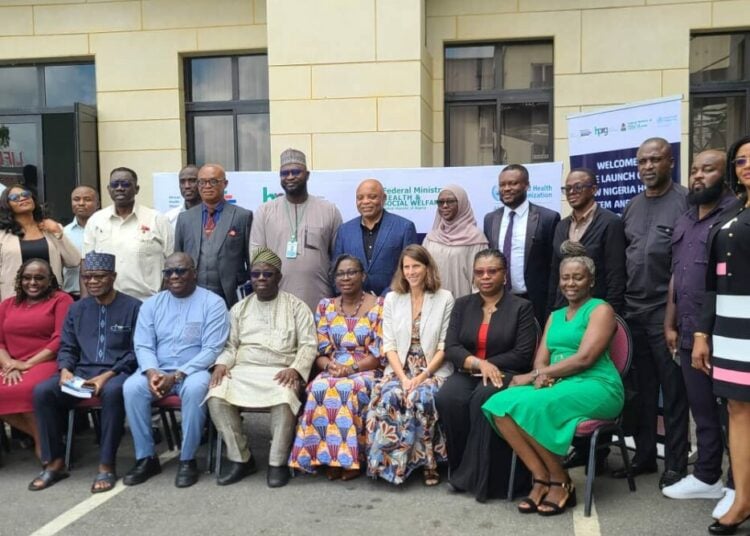A new report on Nigeria’s healthcare system has exposed challenges plaguing the sector, including poor infrastructure, underfunding, weak governance, and persistent inequalities in access to quality care.
This is as Nigeria makes history as the first African country to produce a Country Health System and Services Profile (CHSSP).
The 295-page report, jointly produced by the WHO African Region, the University of Nigeria’s Health Policy Research Group (HPRG) warned that without urgent reforms, Nigeria will miss the Sustainable Development Goals (SDGs) on health and universal health coverage (UHC).
At the unveiling of the Country Health Systems and Services Profile (CHSSP) 2025 for Nigeria yesterday in Abuja, the Federal Ministry of Health and Social Welfare said the challenges outlined in the report are surmountable.
The Minister of Health, Professor Ali Pate said tackling the challenges required multi-stakeholder efforts, adding that the Nigeria Health Sector Renewal Investment Initiative (NHSRII) was conceived by President Bola Tinubu’s administration to address them.

Pate represented by Dr Kamil Shoretire, the Ministry`s Director, Health, Planning, Research and Statistic, said the federal government is addressing the challenges of low expenditure of government in the health sector, over dependence on private health facilities and high out of pocket expenditure through its reforms.
“We launched in the Sector-Wide Approach (SWAp) in August 2024 with a 1.2 billion U.S. dollars investment.
“The SWAp initiative ensures that all stakeholders – government, development partners, civil society and the private sector – operate under a single, unified strategy (One-plan, One-Budget, One-Conversation, One-M&E and One-Report).
“This coordination is essential to maximise efficiency and impact,” he said.
He further said the government, in its drive to achieve universal health coverage by 2030, had increased enrollment in the National Health Insurance Scheme from 16.7 million to over 19.4 million within the past year, adding that the government was strengthening primary health care through the Basic Health Care Provision Fund, disbursing N80 billion in 2024 and increasing it to N298.42 billion in 2025.
“Through the Presidential Initiative for unlocking the Health Care Value Chain, we have created a N5billion U.S. dollars project pipeline and attracted N2 billion in foreign investments,” he said.
In his remarks, Prof. Obinna Onwujekwe, Director of Nigeria’s National Centre for AHOP and Coordinator of the Health Policy Research Group, University of Nigeria, Nsukka, said the CHSSP aims to provide standard evidence for informed policy-making in the health sector.
According to him, the report “assesses Nigeria’s health system performance and service delivery against Africa’s benchmarks to guide appropriate action.”
The CHSSP report revealed that Nigeria’s health system is performing at only 45 percent, below the African regional average of 56 percent. The report noted that performance outputs — access to, demand for, and quality of health services — have improved over the last decade but “remain insufficient to achieve universal health coverage by 2030.”
Despite progress, Nigeria’s absolute coverage of essential services was found to be 1.7 percent below the regional average.
The report also highlighted that private health providers currently deliver 70 percent of all health services, despite owning only 35 percent of health facilities.
It further stated that about 80 percent of Nigeria’s health infrastructure is dysfunctional, impeding service delivery and leading to an estimated one billion U.S. dollars annual loss to outbound medical tourism.
Additionally, out-of-pocket expenditure accounts for 75 percent of total health spending, with only one in ten Nigerians having access to any form of health insurance or risk-pooling scheme.
Also speaking, Beth Kveling, Senior Policy Fellow with the London School of Economics (LSE) Department of Health Policy, commended Nigeria’s leadership in health sector research, noting that the CHSSP would serve as a standard for reform implementation and progress tracking.
“It’s been an absolute pleasure to work with the Health Policy Research Group and WHO on this profile,” Kveling said. “We hope it forms a baseline description of the health system to work from as Nigeria brings in a range of reforms and measures improvement over time.”
Kveling added that similar reports are underway in Ethiopia, Rwanda, Senegal, and Kenya, noting that Nigeria’s pioneering effort provides a valuable comparative framework for African countries.
Speaking on common challenges across African health systems, she noted: “Every country is unique, but issues like data reliability and usage are common. Often, we know what to do — the data is there — but we must get it to decision-makers in a timely fashion to drive real change.”
On his part, Country Director for Network for Equity and Development, Dr Emmanuel Sokpo said people should take health as their right, and then demand for it. “If people start demanding for their rights when they visit a facility or when they don’t have the services they desire, then government and the service providers will sit up.
“Secondly, people also need to ask for, as part of their rights, from the people that are representing them, the legislators and all that. Until people start taking government and health workers to court, getting lawyers to charge them to court, then people will know that these actions that you have taken have consequences,” he called for a strong accountability system for effective healthcare service delivery.





